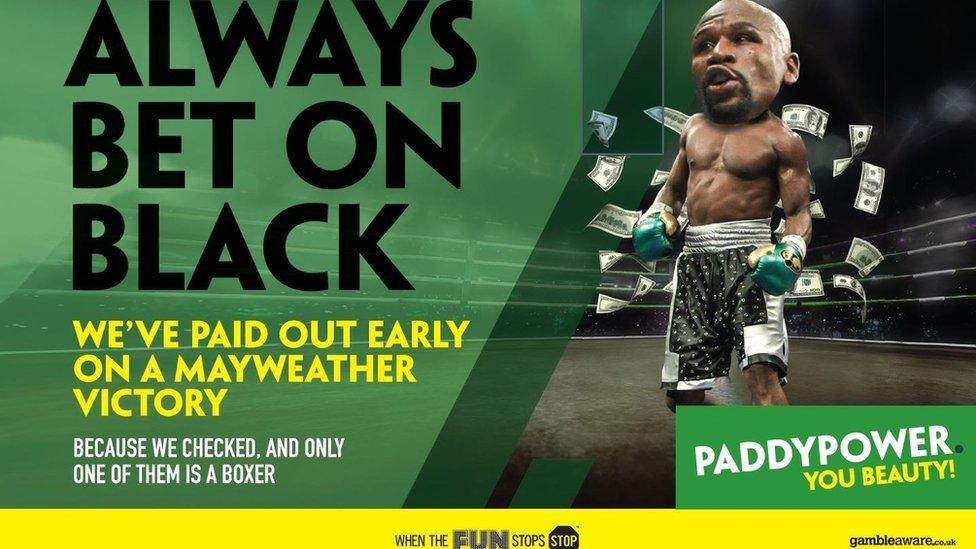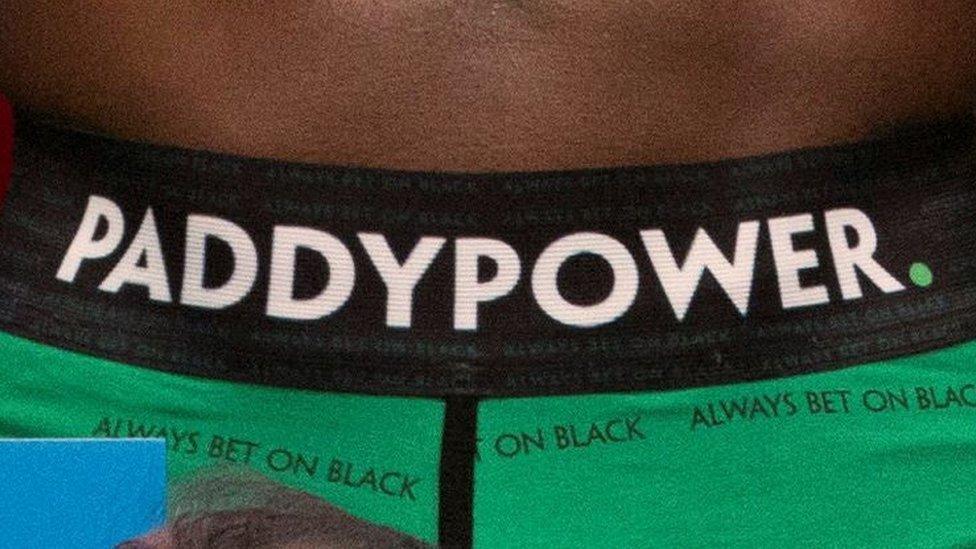Floyd Mayweather 'always bet on black' advert banned on race grounds
- Published

A newspaper advert featuring boxer Floyd Mayweather Jr that encouraged readers to "always bet on black" has been banned.
The Advertising Standards Authority (ASA) ruled the Paddy Power ad was "likely to cause serious offence on the grounds of race".
The bookmaker has been warned not to make a similar mistake in the future.
Paddy Power said it did not believe the advertisement was derogatory, distasteful or offensive.
The phrase used in the advert, which appeared in the Evening Standard and Metro newspapers in August, is a line from the Wesley Snipes film "Passenger 57".
It was used ahead of American Mayweather's controversial fight against Irishman Conor McGregor.
In its ruling, external, the ASA said: "We acknowledged that the headline claim did not make a negative statement about Floyd Mayweather's race and had endorsed him to win the match.
"We also acknowledged that Floyd Mayweather had authorised the claim.
"However, we considered that readers would nevertheless be offended by the invitation to always bet on the outcome of a boxing match based on a boxer's race, and the message that the boxing match was a fight between two different races."

The offending slogan was embroidered on the boxer's trunks at the weigh-in
Paddy Power said Mayweather had found the line funny, rather than offensive or derogatory.
It also pointed out that the phrase "always bet on black" had been embroidered on the underwear Mayweather wore at the official weigh-in for his fight.
The regulator has also banned a television advert featuring ex-Formula One star David Coulthard for encouraging dangerous driving.
The extended ad for a new "safe driving" app from car insurance firm Aviva prompted 58 complains to the ASA.
In the ad, Coulthard, wearing a false beard, plays the part of a cab driver who performs high-speed stunts on public roads with shocked passengers in the back.

At the end of the journey, Coulthard asked them to pay for the ride, before revealing his true identity.
A disclaimer warns viewers not to copy scenes.
The ASA said: "It featured reckless driving on public roads and therefore encouraged dangerous and irresponsible driving.", external
Aviva unsuccessfully argued that Coulthard's stunts "encouraged and promoted" safer driving.